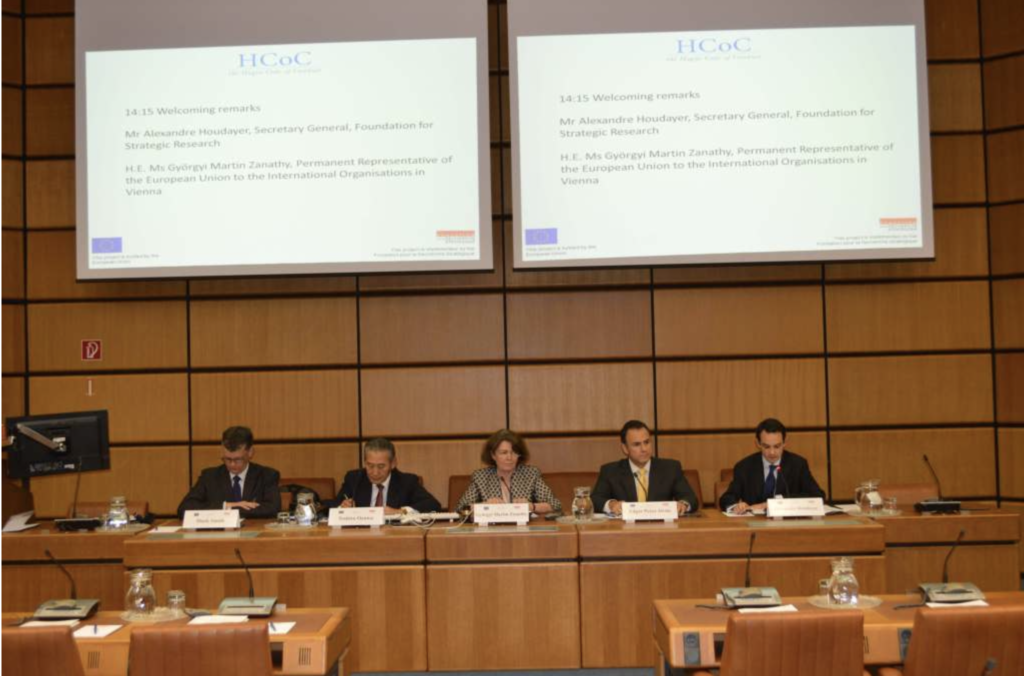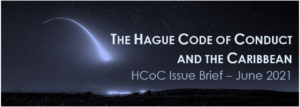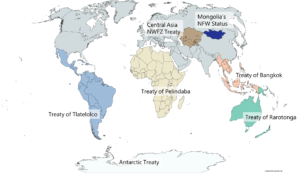Vienna outreach side event on HCoC
28 May 2014
On 28 May 2014, the FRS organised, on behalf of the European Union, an outreach event in support of both the HCoC and ballistic missile non-proliferation. This meeting took place at the Vienna International Centre in the margins of the HCoC annual meeting of subscribing states.

AGENDA
WELCOMING REMARKS
- Alexandre HOUDAYER, Secretary General, Foundation for Strategic Research
- H.E. Györgyi Martin ZANATHY, Permanent Representative of the European Union to the International Organisations in Vienna
ROUND TABLE I: THE HCoC: UNIVERSALITY, IMPLEMENTATION & VISIBILITY
- H.E. Toshiro OZAWA, Permanent Representative of Japan to the International Organisations in Vienna; Outgoing HCoC Chair
- The role of HCoC and activities carried out during the Japanese Presidency
- Edgar PÉREZ ALVÁN, Minister Counsellor, Chargé d’Affaires, Permanent Delegation of Peru to the International Organisations in Vienna; Incoming HCoC Chair
- Perspectives for HCoC and aims for the Peruvian Presidency
- Dr. Mark SMITH, Programme Director, Defence and Security, Wilton Park
- Current and future challenges facing HCoC and the potential means of enhancing its role
ROUND TABLE II: HCoC IN THE REGIONAL SECURITY ENVIRONMENT
- Dr. Han HUA, Director, Center for Arms Control and Disarmament, Peking University School of International Studies
- Chinese perceptions of the issues and trends in the ballistic field, HCoC and the regional security environment
- Animesh ROUL, Executive Director, Society for the Study of Peace and Conflict, New Delhi
- Indian perceptions of the issues and trends in the ballistic field, HCoC and the regional security environment


